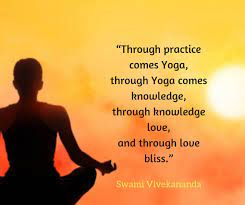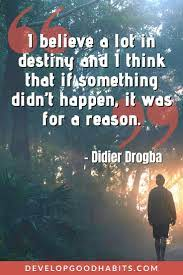What is Vedanta
Vedanta affirms:
The oneness of existence,
The divinity of the soul, and
The harmony of all religions.
A closer look at the word “Vedanta” is revealing: “Vedanta” is a combination of two words: “Veda” which means “knowledge” and “anta” which means “the end of” or “the goal of.” In this context the goal of knowledge isn’t intellectual—the limited knowledge we acquire by reading books. “Knowledge” here means the knowledge of God as well as the knowledge of our own divine nature. Vedanta, then, is the search for Self-knowledge as well as the search for God.
What do we mean when we say God? According to Vedanta, God is infinite existence, infinite consciousness, and infinite bliss. The term for this impersonal, transcendent reality is Brahman, the divine ground of being. Yet Vedanta also maintains that God can be personal as well, assuming human form in every age. Most importantly, God dwells within our own hearts as the divine Self or Atman. The Atman is never born nor will it ever die. Neither stained by our failings nor affected by the fluctuations of the body or mind, the Atman is not subject to our grief or despair or disease or ignorance. Pure, perfect, free from limitations, the Atman, Vedanta declares, is one with Brahman. The greatest temple of God lies within the human heart.
Vedanta asserts that the goal of life is to realize and to manifest our own divinity. This divinity is our real nature, and the realization of it is our birthright. We are moving towards this goal as we grow with knowledge and life experiences. It is inevitable that we will eventually, either in this or in future lives, discover that the greatest truth of our existence is our own divine nature.
Vedanta further affirms that all religions teach the same basic truths about God, the world, and our relationship to one another. Thousands of years ago the Rig Veda declared: “Truth is one, sages call it by various names.” The world’s religions offer varying approaches to God, each one true and valid, each religion offering the world a unique and irreplaceable path to God-realization. The conflicting messages we find among religions are due more to doctrine and dogma than to the reality of spiritual experience. While dissimilarities exist in the external observances of the world religions, the internals bear remarkable similarities.
According to the Vedanta teachings there are four paths we can follow to achieve the goal of understanding our divine nature. These paths are known as the Four Yogas. We can choose a path based on our personality or inclination, or follow the practices of the paths in any combination.
Bhakti Yoga
Bhakti Yoga is the path of love and devotion. The devotee approaches God through a loving relationship. This path emphasizes practices such as prayer, chanting, and meditation on God as a loving presence in our lives.
Jnana Yoga
Jnana Yoga is the path of knowledge. In this path the seeker uses reason and discernment to discover the divine nature within by casting off all that is false, or unreal. This practice shows us that the Supreme Reality resides within.
Karma Yoga
Karma Yoga is the path of selfless work. Those who follow this path do work as an offering to God and expect nothing personal in return. Karma Yoga teaches us to practice detachment and equanimity in our work, and to understand that the results of any actions are beyond our control.
Raja Yoga
Raja Yoga is the path of meditation. Meditation is an important practice in all of the paths as it allows us to experience higher states of
Charvaka’s hedonism, an elixir of happiness
As long as you live, live happily, beg, borrow or steal, but relish ghee, clarified butter.” This is an oft-quoted maxim of Charvaka Darshan, which doesn’t actually reflect the universality of sukhvaad, hedonism and somewhat trivialises the profundity of this outright iconoclastic school of Indic philosophy.
Before proceeding further, let’s understand the concept of hedonism. Hedonism is the ethical theory that pleasure, in the sense of the satisfaction of desires, is the highest good and proper aim of human life.
Ethical or evaluative hedonism claims that only pleasure has worth or value; pain or displeasure has disvalue, the opposite of worth. Jeremy Bentham asserted both psychological and ethical hedonism by saying, “Nature has placed mankind under the governance of two sovereign masters, pain and pleasure. It is for them alone to point out what we ought to do, as well as to determine what we shall do.” Here, one must mention that hedonism is not completely an exclusive idea propounded by the Charvaka school.
Like Charvaka, Greek philosopher Epicurus also put a great emphasis on pleasure.
To an uninitiated, Charvaka’s hedonism may appear to be a tad too sensual, corporeal and even carnal. But it’s too general an understanding of a deeper philosophy that humans need to stop desiring anything they don’t naturally need. Humans have been hankering after things they don’t require and, in a bid, to fulfil all the utterly elusive desires, we tend to lose the simplest joys that constitute a healthy and fulfilling existence. It’s like a proverbial Urdu couplet, ‘Na Khuda hi mila, na visaal-e-sanam/ Na idhar ke rahe, na udhar ke hum’ – ‘Neither did I realise god, nor did I find the company of my beloved/ I lost on both the fronts.’
The hedonism of Charvaka had a humanitarian streak to it. Charvaka believed that a joyful existence needs nothing else and individualistic happiness can pave the way for universal happiness. This is of paramount importance. No individual seems to be intrinsically happy. We’re constantly stressed out. To quote Pakistani poet Abdul Hamid Adam, ‘Ulajh ke rah gaya girdaab-e-jahan mein/ khushiyaan aayeen dabe paaon, chal deen sargoshi se’ – ‘Lost in the vortex of life/ I couldn’t discern when joys came tip-toeing and went surreptitiously.’ This is a universal lamentation felt by every rueful individual towards the fag-end of his life. What have we gained in life in this rat race of so-called success and accomplishments? Sadly, cipher; not even a zilch. We’ve deprived ourselves of life’s little joys and innocuous pleasures.
Charvaka exhorts us not to resist or resent the natural flow of happiness, for happiness is but an occasional episode in the painful drama of life. Ergo, enjoy life to the hilt, indulge in pleasures and welcome all that’s good. This is a grateful acceptance of positive energy.
We’re all sullen-faced, sulking souls because we’re too much into the ethical conundrums of good and bad and moral and immoral dilemmas. That palpable vibrancy and vivaciousness is seriously lacking in our lives. A measured hedonistic approach to life can bring back that estranged exuberance. Mind you, Charvaka’s hedonism is neither svairachaar, bohemianism, nor is it nihilistic. It’s an elixir and existentialism of universal happines
7th heaven moment of the week Liecester no 7 scored two goals Liverpool no 7 scored a spot goal




























